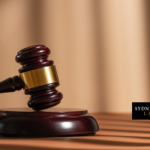Child Sexual Assault and the Statute of Limitations in Australia

There is no specific statute of limitations in Australia for criminal offences.
However, there are rules that prevent many less-serious offences from being charged long after the incident. For example, police in NSW will not normally be allowed to press charges for less-serious offences, called ‘summary offences’, more than 6 months after the alleged incident occurred.
More serious offences, called ‘indictable offences’, do not normally have a limitation period and can therefore be charged at anytime. These include sexual assault offences.
However, prosecutors will often decide not to press charges for indictable offences if the complaint is made years or decades after the alleged incident.
This is because vital evidence or key witnesses may no longer be available, which can make charges harder to prove.
Charges brought years after an incident are also harder to defend because a defendant’s recollection may have faded and he or she may not be able to recall an alibi or other specific events that happened long ago.
Sexual assault, including child sexual assault, is one area where there is often a significant delay in reporting. However, it is one category that often is tried a long time after the event because there may be good reasons for a victim to have kept silent.
For example, they may be too scared, ashamed or embarrassed to tell anyone, or they may think no-one would believe them anyway.
Sexual assault is often hard to prove or disprove at the best of times as there are usually no witnesses – so it often boils down to who is believed in court.
Incidents of sexual assault can be difficult to detect and prosecute due to the vast inequality between the victim and the defendant and the lack of material evidence such as CCTV footage and eye-witness statements.
It is no understatement to say that the effects of child sexual abuse can be life-long and scarring.
Many victims who have spoken out during the Royal Commission into child abuse have told stories of the terrible acts inflicted on them as children.
There has been a flood of new child abuse complaints during the Royal Commission into the data, many reaching back decades.
If a statute of limitations applied to sexual assault cases, it may have prevented some complainants who spoke out during the current inquiry into the Catholic Church from ever getting their cases heard or receiving compensation.
Legal reform and case-law have now removed the presumption that a failure to report immediately indicates a false allegation. However, victims of sexual assault who fail to speak up sooner can still face difficulties in getting their case heard.
Innocent defendants also face great difficulties when an allegation is made against them. I mean, can someone really be expected to recall (insignificant) events decades ago, such as how many drinks they had at a social function at their home, or what they were wearing, or where in the house they walked at specific times?
However, such failures of recollection can be a rich source of cross-examination for a good prosecuting barrister who may be able to discredit an innocent defendant who is brave enough to take the witness stand in a sexual assault trial.
Limitation Periods for criminal offences in Australia vary from state to state.
As mentioned, a limitation period applies in NSW in less serious offences (summary offences) which can normally only be prosecuted up to 6 months after the incident.
Any indictable offence (more serious offences that can be tried in the District court and therefore may carry heavier penalties) can be brought anytime.
Statutory limitations currently still apply to child abuse victims in Victoria. In fact, up until the 1990s, young girls had only one year to report sexual abuse; otherwise a case cannot be prosecuted and some provisions of the provisions of the Limitations of Actions Act can still block victims of sexual abuse from taking legal action.
In May 2014, Victorian Attorney-General Robert Clark announced that changes would be made to this legislation, which would finally allow for decades-old abuse claims to be heard.
The government has also added offences such as a failure to report suspected child abuse as well as liability for people holding a position of responsibility who fail to protect a child when they know that someone in their organisation poses a risk.
This has particular significance in relation to the revelation that many church members, or school boards had direct knowledge of the kind of behaviour that was occurring, and nothing was done about it, or offenders were simply moved to another diocese following a complaint. The church was, simply put, looking after the institution, not the victims.
The Victorian Attorney General hopes that these legislative changes will pave the way for victims to be able to recover compensation, and that perpetrators or organisations responsible will no longer be able to shield behind the expiration of a time limit.
Receive all of our articles weekly
Author






